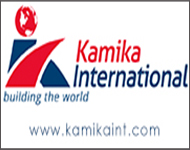 Ugandan President Yoweri Museveni has approved the US$2.9 bn loan for the construction of the Standard Gauge Railway (SGR) from Malaba in Kenya to Kampala.
Ugandan President Yoweri Museveni has approved the US$2.9 bn loan for the construction of the Standard Gauge Railway (SGR) from Malaba in Kenya to Kampala.
Initially, Uganda was considering building a railway through Tanzania after failing to get assurances from Kenya that it would extend the Mombasa-Nairobi line to Malaba. However, Kenya has committed to extend first phase of the SGR to Nairobi in phases to Naivasha, Kisumu and eventually Malaba.
East Africa Railway Masterplan
President Museveni loan approval indicates that China has agreed to fund the line under the terms of the project being a joint project between governments including Rwanda, which will be considered the last stop of the Northern Corridor under the East Africa Railway Masterplan. Another line in the Central Corridor will be from Dar es Salaam to Burundi and Rwanda will complete the circuit meant to boost trade in the region.
According to President Museveni’s letter to parliament, the US$600mn loan, is more than the US$2.3 bn contained in the feasibility study, should be on condition that concerns over the technical specifications and project costs raised by the Parliamentary Committee on Infrastructure in February will be addressed.
The Treasury confirmed that the money included the costs of arranging for the loan from China Exim Bank, such as insurance, even as State Minister for Planning David Bahati suggested the higher amount could be the result of a typing error.
“Are you sure it was $2.9 billion? I seem to remember writing $2.29 billion,” said David Bahati.
Jim Mugunga, Ministry of Finance spokesperson clarified that, the extra allocation was meant to cover costs associated with borrowing the loan.
“When you go to negotiate with lenders, the bank asks for management and insurance fees,” Mr Mugunga said.
Insurance terms
Depending on the project risk, insurance ranges from 5-10%. For the first phase of Kenya’s standard gauge railway project, it was 6.93%.
Uganda has been collecting a 1.5% infrastructure levy on imports since the 2014/15 financial year under an arrangement by East African partner states to support the construction of the railway.
Ugandan parliament report reveals that in the case of Karuma hydropower dam, the project cost was estimated to be at US$1.7 bn and Uganda government borrowed US$1.4 bn of which the rest was counterpart funding. Management and insurance fees for the project were US$69.8 mn. It I noted the Uganda has previously borrowed money from China Exim without such a notable cost escalation.
“Uganda is expected to provide counterpart funding of 15% or US$345 mn largely for compensation of people affected by the project. This would take the extra borrowing totaling up to US $900 mn,” said SGR Co-ordinator, Kasingye Kyamugambi.
Public debt
The Uganda line is expected to cost US$8.2 mn per km, compared with US$5mn per km for Ethiopia and US$7.7 mn per km for the Mombasa-Nairobi phase in Kenya.
China Harbour Engineering Company is nevertheless expected to build the 273-km line within a period of 40 months. The cost of each project is determined by the terrain.
President Museveni has also approved the borrowing of about US$4.4 bn for infrastructure projects and rejected 11 loan requests worth US$714 mn.
For the 2017/18 financial year, Uganda is expected to spend US$4.7 bn in loan and interest payments. This is more than half of the country’s US$8 bn budget.
In charge of approving government loans, Syda Bbumba, the parliamentary committee chairperson, noted that the president had instructed that in the future he will personally approve government borrowing. Previously, loans went through the Cabinet, before being passed on to Parliament.
“ The Cabinet is sometimes chaired by the prime minister and as result the president was not always aware of the approved loans,” said Syda Bbumba. “Uganda will reject new loans for capacity building and workshops, as these are no longer necessary,” she added.
Posted on : 28 Jul,2017
 Ugandan President Yoweri Museveni has approved the US$2.9 bn loan for the construction of the Standard Gauge Railway (SGR) from Malaba in Kenya to Kampala.
Ugandan President Yoweri Museveni has approved the US$2.9 bn loan for the construction of the Standard Gauge Railway (SGR) from Malaba in Kenya to Kampala.




















